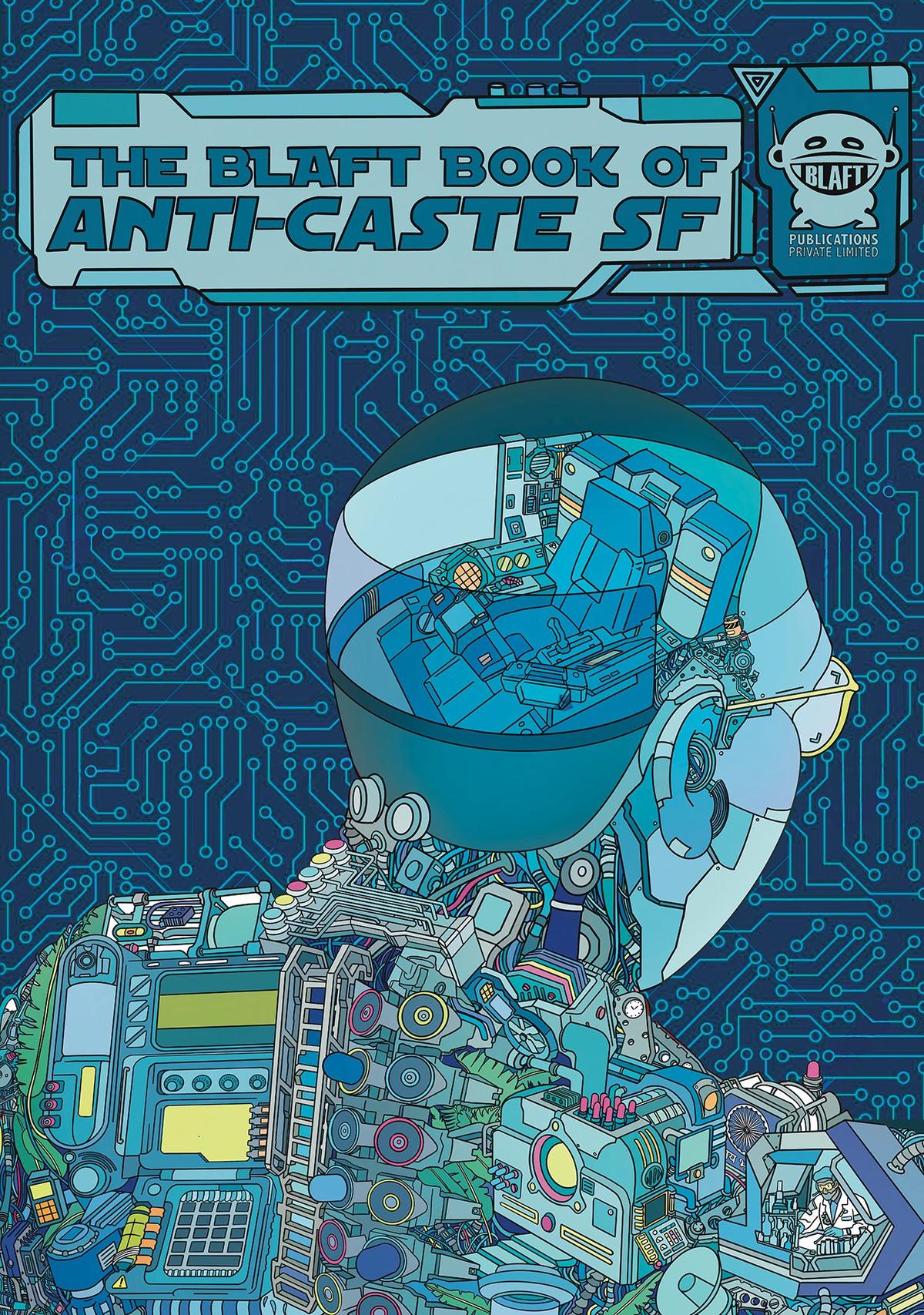Ravidas, a poet-saint from the 15th century, dreamt up a city called Begumpura, where there is ‘no pain, no taxes or cares’. “He imagines a casteless society,” says Delhi-based writer Rahee Punyashloka. This work by the saint, he points out, is proof that “the first work of speculative fiction that came out of South Asia is anti-caste”. Speculative fiction, a genre with futuristic, fantastical, and supernatural elements, can offer the perfect fit for anti-caste stories.
The question of alterity and speculation are intricately tied with the anti-caste idiom, asserts Punyashloka. “Speculative fiction that comes out of this country has to deal with caste and the question of an anti-caste future.” One of his short stories, a meta-literary commentary on an anthology of anti-caste speculative fiction, has found its way into an anthology of the exact same setting: The Blaft Book of Anti-Caste SF.

The anthology is set to be published later this year by Blaft, a Chennai-based publishing house known for bringing out translations of Tamil pulp, weird fiction and folklore, apart from graphic novels. It is co-edited by R. Talitha Samuel, an assistant editor at the publishing firm. “In India, almost all the speculative fiction that’s been published, at least in English, has been by people from upper caste backgrounds; there’s been very little representation of Dalit or Adivasi writers,” says Rakesh Khanna, director and editor-in-chief of Blaft. It was Delhi-based Samuel, a Dalit and Ambedkarite, who came up with the idea for the anthology, for which Blaft sent out a call for submissions in June. They also launched an online crowdfunding campaign last month and managed to make it past their target in just four days.

Blaft’s R. Talitha Samuel who conceptualised the anti-caste SF anthology. | Photo Credit: Special arrangement
Samuel, who used to do a podcast on Ambedkar, says they are a huge fan of speculative fiction. “There is a definition of speculative fiction that I really like: ‘It disorients the familiar, familiarises what is strange’,” they say, adding that this “massive umbrella genre is perfect for something like this”.
Questioning dominant politics
Samuel explains that there are different ways people approach speculative fiction, citing examples of movies such as the Ranbir Kapoor and Alia Bhatt-starrer Brahmastra (2022) and books like The Secret of the Nagas (2011) by Amish Tripathi that evoke Hindu imagery. “In one sense, they are apolitical, aligning with the status quo,” the 24-year-old points out, adding: “The imagery is futuristic, but they very much toe the line. Whereas if you look at Afro futurism or indigenous futurism, they question dominant culture and politics.”
Samuel adds that if speculative fiction has to be taken seriously as a genre, it has to, by nature, be anti-caste. “The whole point of speculative fiction is that it asks questions, and doesn’t assume that mainstream or dominant narratives can go unquestioned.” While curating stories for the anthology, Samuel says they were not surprised to find several, some of them published decades ago and now out of print, that fit their requirement. “We have stories by writers Bama, Gogu Shyamala, Rahee Punyashloka, apart from first-time authors.” The anthology will have translations from Tamil, Telugu, Malayalam, Kannada, Gujarati, Hindi, and Marathi, and comics as well.

Writer Rahee Punyashloka
Some of the tales include ‘Parivrajak’ by Gautamiputra Kamble (a Buddhist fantasy, translated from Marathi), ‘Robot No. SC5’ by Neerav Patel (science fiction, translated from Gujarati), ‘The Miraculous Ladder’ by Shyamala (caste allegory, translated from Telugu), ‘File No. 786 [The Night Journey]’ by Hameedha Khan (supernatural), and ‘Pruning Neurons’ by Esther Larisa David (demonic entities).

Translator Divya Kalavala
Bengaluru-based Divya Kalavala, who has translated Shyamala’s Telugu story, says, “Dalit literature has had its own journey; because of Dalit political consciousness, certain changes have come in literature as well.” She feels that speculative fiction leads to Dalit futurism. “It allows for writers to break out of the box. Watertight compartments and restrictions are gone, and writers can reinvent themselves, and in the process, find it healing and liberating.”
akila.k@thehindu.co.in


